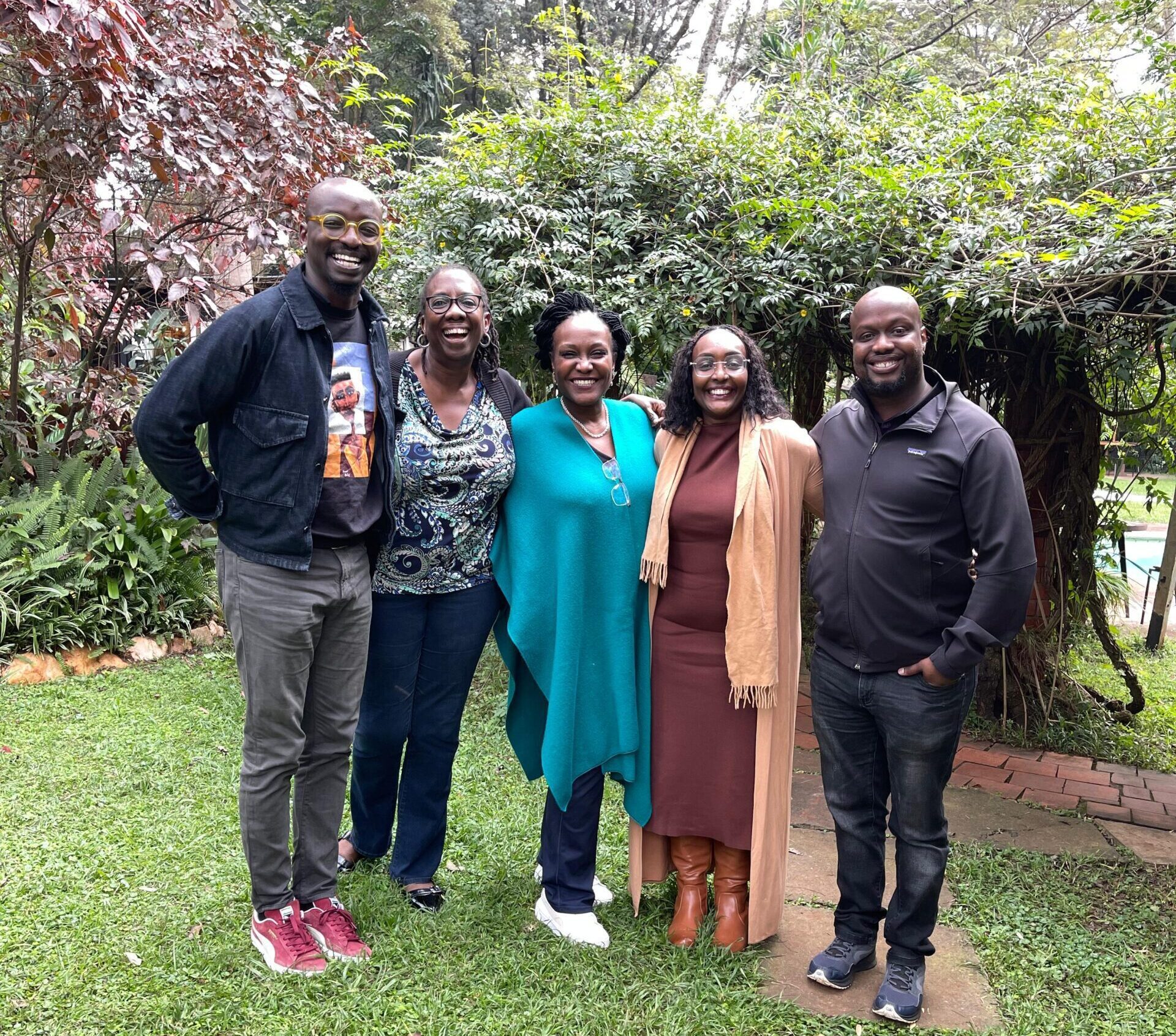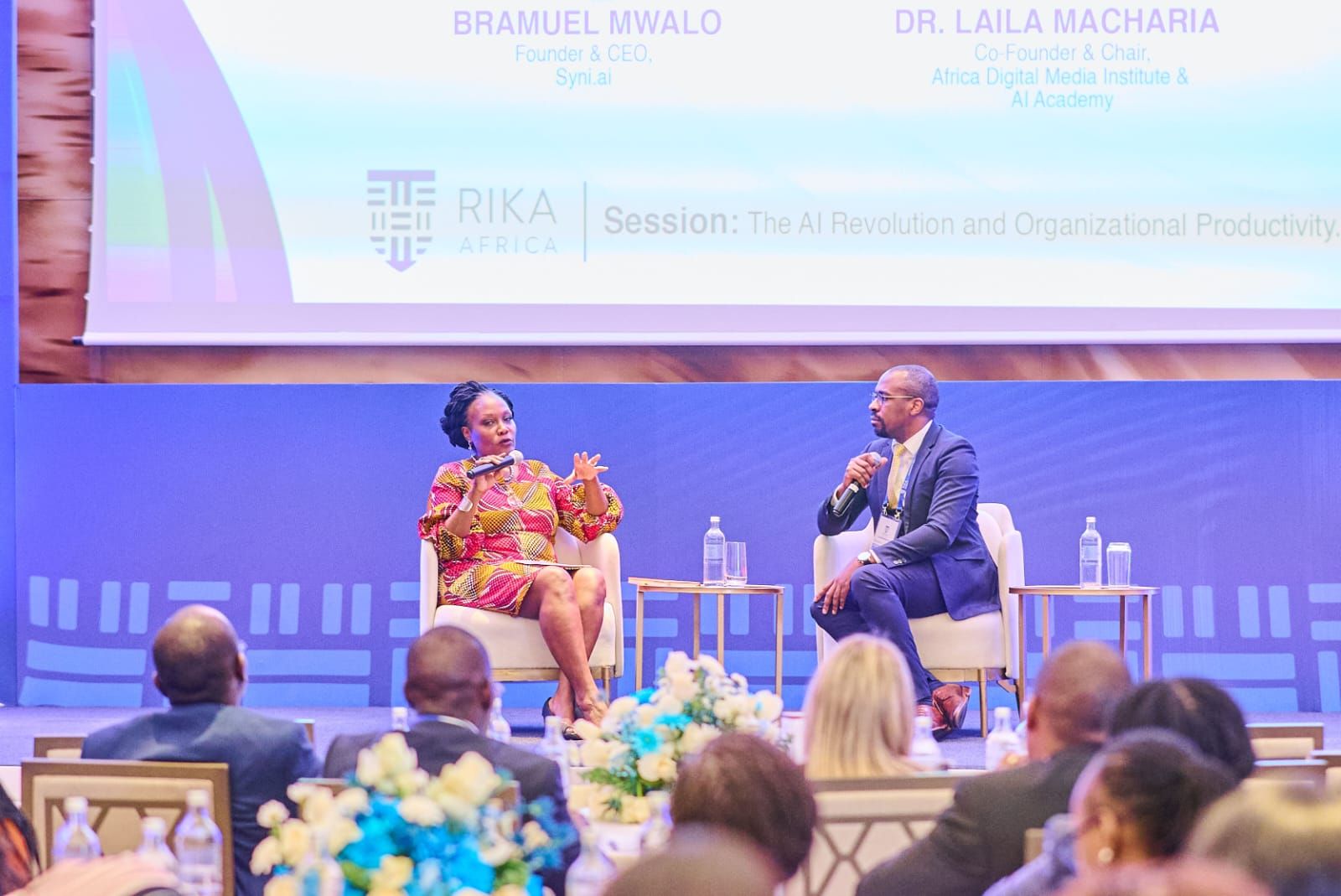Kenya 

Kenya 

We’re excited to introduce Laila Macharia as the new Head of our Kenya program at Imaginable Futures. With a career spanning legal reform, infrastructure development, digital skills training, and social impact entrepreneurship, Laila brings a bold and grounded vision to our work in the region.
We recently sat down with her to talk about what drew her to IF, how she’s thinking about impact and partnership in Kenya, and why this moment feels like a powerful inflection point for reimagining education and opportunity across the region.
Edith: Tell us a bit about your journey—what brought you to this point in your career, and to Imaginable Futures?
Laila: My path has been anything but linear, but there’s been a common thread: I’ve always been drawn to building ecosystems where people—especially young people—can thrive. Whether in law, infrastructure, or entrepreneurship, I’ve looked for ways to support people to unlock their potential. Imaginable Futures feels like a natural next step. The mission aligns deeply with my own—working with local communities to shape education systems that are inclusive, practical, and rooted in dignity.
Edith: As you are probably learning, our values are central to how we show up at Imaginable Futures. They’re more than just words—they shape how we collaborate, lead, and learn. How do these values resonate with yours?
Laila: They really do resonate. What struck me early on is that the values here—compassion, courage, inclusion—are lived, not just stated. I try to lead in ways that honor people’s lived experiences, especially those closest to the problems we’re trying to solve. That’s key to our work in Kenya, where we need to support a new generation of leaders—young people with the agency and education to transform their own communities. Values help keep us focused on that bigger purpose.
We need to support a new generation of leaders—young people with the agency and education to transform their own communities. Values help keep us focused on that bigger purpose.
Laila Macharia
Edith: What opportunities do you see for transformative impact in Kenya and the region right now?
Laila: There is an incredible generation of young Africans coming of age in a context full of both promise and pressure. If we can support them with dignified learning-to-earning pathways—ones that reflect the realities of our labor markets and aspirations—we’ll unlock not just individual potential but regional prosperity. I also see room for systems-level change in how education, work, and entrepreneurship are connected. And across the continent, African thinkers, and change-makers are already meeting these challenges head-on, making incredible impact and showing us what’s possible.
Edith: How are you thinking about our role in collaborative philanthropy and the opportunities for partnerships with funders and grantees as you begin this role?
Laila: For me, collaboration means much more than co-funding; it’s about co-creating. As Founding Director of the Aspen Initiative Africa in Nairobi, I saw firsthand the superpower of bringing changemakers from different sectors into shared spaces. When people come together to challenge one another, build trust, and imagine new possibilities, it leads to real action.
I want to bring that same energy to Imaginable Futures. One important role we have is to help connect the dots—convening funders, grantees, youth leaders, and others who are deeply embedded in their communities. And that starts with showing up, listening well, and creating room for bold, collective thinking.

Edith: What does “African-led change” mean to you in practice—and how should it shape our work?
Laila: It means trusting the wisdom, priorities, and agency of people on the ground. It means funding organizations not just to implement, but to lead. And it means holding ourselves accountable to context.
At IF, this looks like backing African education researchers, youth-led innovations, and initiatives that are validated by their impact on communities, not just by Western benchmarks.
Edith: What’s one bold idea you’re excited to explore as you lead the Kenya team?
Laila: How can you ask me to just pick one? I have two…hope that’s allowed! First, I’m eager to deepen our engagement with action-oriented education research and how investment here can unlock African-led knowledge that advances the prosperity and potential of the continent. Starting with transforming university-based education research, we can help drive change in policy, practice, and ultimately, in society. These Africa-led initiatives—grounded in what’s needed and driven by community voices—feel incredibly catalytic. I’m excited to explore how Imaginable Futures can support and scale these research-to-action efforts.
Second, my background and passion have always been rooted in dignified learning-to-earning pathways—especially around job readiness and work creation. I’d like to emphasize skills-to-work pathways, backed by data, as a critical tool for education reform. I’m also eager to experiment with what learning looks like beyond the traditional university route—think creative industries, the digital gig economy, and care-focused work. Young Kenyans are already innovating in these spaces, but they’re often underfunded and undervalued. What if we helped legitimize those paths so they become not just alternatives, but respected, viable options?
Edith: What advice would you give to young African leaders trying to make a difference today?
Laila: Don’t wait for perfect conditions to start. Lead with integrity, find your people, and keep showing up. Also, take care of yourself. Social change is a long game, and we need you well and whole for the journey ahead.
Edith: And finally—what’s one word that captures your vision for the future of East Africa?
Laila: Unbounded. Because the potential here is vast. And when systems and narratives stop limiting us, that’s when true transformation happens.
Edith: Thank you, Laila. Your clarity of purpose—and belief in young people’s power to shape the future—is deeply inspiring. I am excited to be working with you and we’re so glad you’re here. We can’t wait to see what we’ll build together.